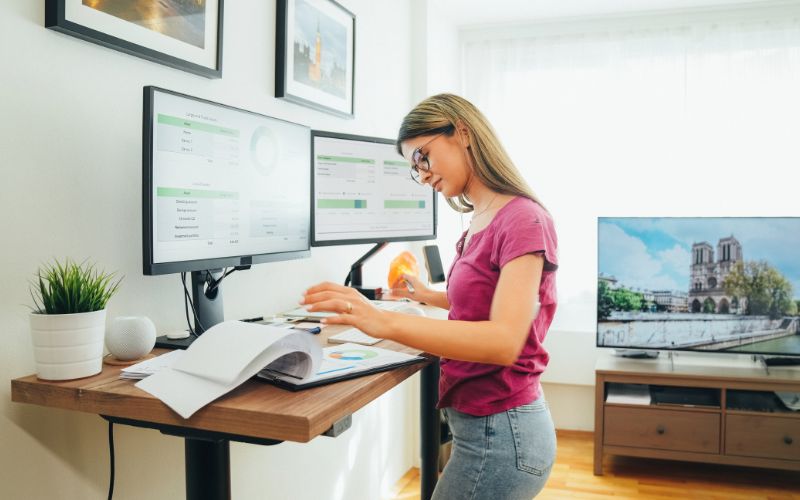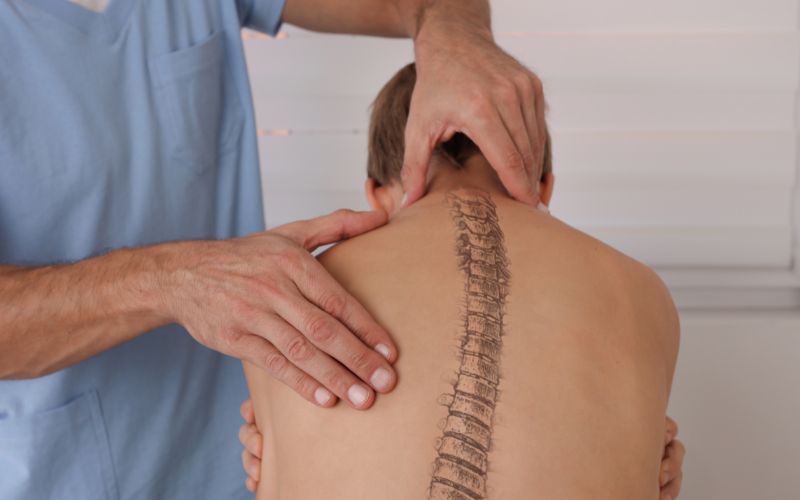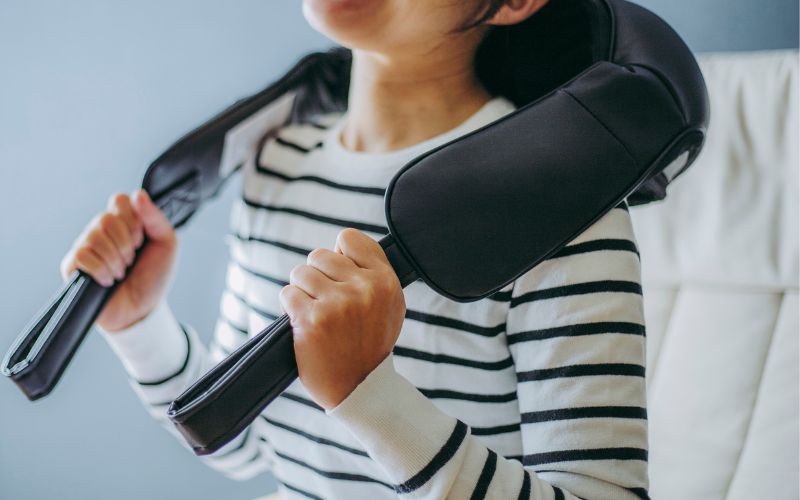Neck pain is a common ailment that affects millions of people worldwide. Whether it’s caused by poor posture, muscle strain, or an underlying condition, dealing with neck pain can be uncomfortable and hinder your daily activities. While seeking medical advice is essential for severe or chronic neck pain, there are several home remedies you can try to alleviate discomfort and promote healing. In this article, we will explore effective methods to help you cure neck pain fast in the comfort of your own home
Neck pain can significantly impact your daily life, making simple tasks challenging and causing discomfort. Fortunately, there are various methods you can employ at home to alleviate neck pain and facilitate healing. By incorporating these remedies into your routine, you can experience relief and promote the overall well-being of your neck.
Understanding Neck Pain
Before diving into the remedies, it’s crucial to understand the common causes of neck pain. Neck pain can be caused by muscle strains, poor posture, stress, arthritis, herniated discs, or underlying medical conditions. Identifying the root cause of your neck pain can help you tailor your treatment approach effectively.
Applying Heat and Cold Therapy
Heat and cold therapy are simple yet effective methods for managing neck pain. Applying a hot compress or taking a warm shower can help relax tense muscles and improve blood circulation. On the other hand, cold therapy, such as ice packs or cold compresses, can reduce inflammation and numb the area, providing relief.
Practicing Neck Stretches and Exercises
Neck stretches and exercises can help improve flexibility, strengthen muscles, and alleviate neck pain. Simple exercises like neck rotations, side-to-side movements, and chin tucks can help reduce muscle tension and enhance range of motion. It’s important to perform these exercises gently and avoid any movements that cause pain or discomfort.
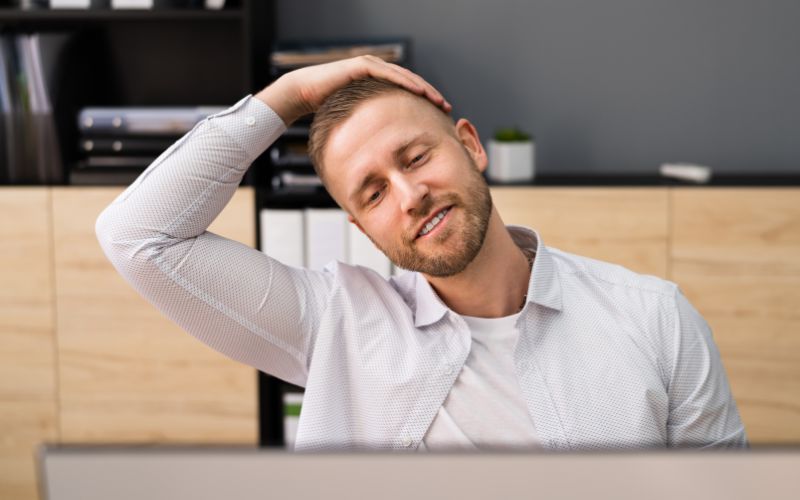
Utilizing Neck Massagers for Relief
Neck massagers are excellent tools for relieving neck pain and muscle tension. These portable devices come in various forms, including handheld massagers and neck wraps with built-in massaging mechanisms. Neck massagers work by applying pressure and vibrations to the affected areas, promoting relaxation and stimulating blood flow. They can be used at home, in the office, or even during travel to provide quick relief from neck pain.
Using a neck massager is simple and convenient. Place the massager around your neck and adjust the settings to your desired intensity. The massager will target the sore muscles and provide a soothing massage experience. Regular use of a neck massager can help reduce pain, improve mobility, and enhance overall neck health.
Improving Posture and Ergonomics
Poor posture is a common contributor to neck pain. By maintaining proper posture, you can alleviate stress on your neck and prevent pain from worsening. When sitting or standing, ensure that your spine is aligned, your shoulders are relaxed, and your head is balanced on top of your neck. Additionally, adjusting your workspace ergonomics, such as using an ergonomic chair and positioning your computer monitor at eye level, can help promote good posture and reduce strain on your neck.

Using Supportive Pillows and Mattresses
Sleeping with the right pillow and mattress can make a significant difference in managing neck pain. A supportive pillow should keep your neck aligned with your spine, ensuring proper support and reducing strain. Memory foam or orthopedic pillows are often recommended for neck pain sufferers. Likewise, a mattress that offers adequate support and contours to your body’s natural curves can help alleviate pressure points and promote better spinal alignment during sleep.
Trying Over-the-Counter Pain Relief
Over-the-counter pain relievers can provide temporary relief from neck pain. Non-steroidal anti-inflammatory drugs (NSAIDs) like ibuprofen or acetaminophen can help reduce pain and inflammation. However, it’s important to follow the recommended dosage and consult with a healthcare professional if you have any underlying health conditions or are currently taking other medications.
Engaging in Relaxation Techniques
Stress and tension can exacerbate neck pain. Engaging in relaxation techniques can help reduce stress levels and alleviate muscle tension. Practices such as deep breathing exercises, meditation, yoga, and mindfulness can promote relaxation and provide relief from neck pain. Incorporating these techniques into your daily routine can contribute to better overall well-being.
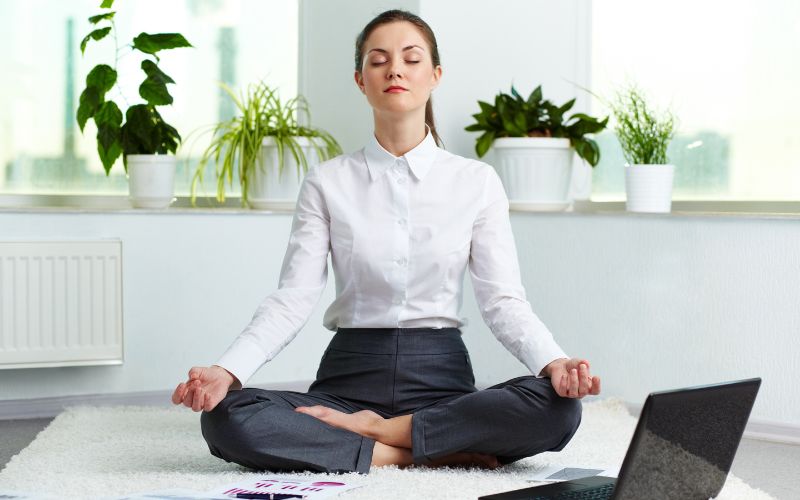
Maintaining a Healthy Lifestyle
Leading a healthy lifestyle can play a crucial role in managing and preventing neck pain. Regular exercise, maintaining a healthy weight, and staying hydrated can promote good overall health, reduce the risk of muscle strain, and enhance the flexibility and strength of your neck muscles. Additionally, incorporating a balanced diet rich in nutrients and antioxidants can support the healing process and reduce inflammation in the body.
Seeking Professional Assistance
If your neck pain persists or worsens despite trying home remedies, it’s important to seek professional assistance. A healthcare provider, such as a chiropractor or physical therapist, can assess your condition, provide a proper diagnosis, and recommend specific treatments tailored to your needs. They may employ techniques such as manual therapy, stretching exercises, or other interventions to address the underlying causes of your neck pain.
FAQ
Neck pain can sometimes be a symptom of an underlying medical condition. If your neck pain is severe, persistent, or accompanied by other concerning symptoms, it’s advisable to consult with a healthcare professional for proper evaluation.
The duration of neck pain recovery can vary depending on the cause and severity of the pain. With consistent home remedies and lifestyle changes, most cases of mild to moderate neck pain can improve within a few days to a few weeks.
While neck massages can provide relief for many individuals, it’s essential to be cautious if you have certain conditions such as spinal injuries, fractures, or severe osteoporosis. If you have any concerns, it’s best to consult with a healthcare professional before using a neck massager.
When experiencing neck pain, it’s best to avoid exercises or movements that worsen your discomfort. This may include activities like heavy weightlifting, high-impact exercises, or sudden neck movements. Gentle neck stretches and exercises are generally safe, but it’s important to listen to your body and stop if you experience increased pain.
Yes, stress can contribute to muscle tension and exacerbate neck pain. Engaging in relaxation techniques and stress management practices can help alleviate neck pain associated with stress.


